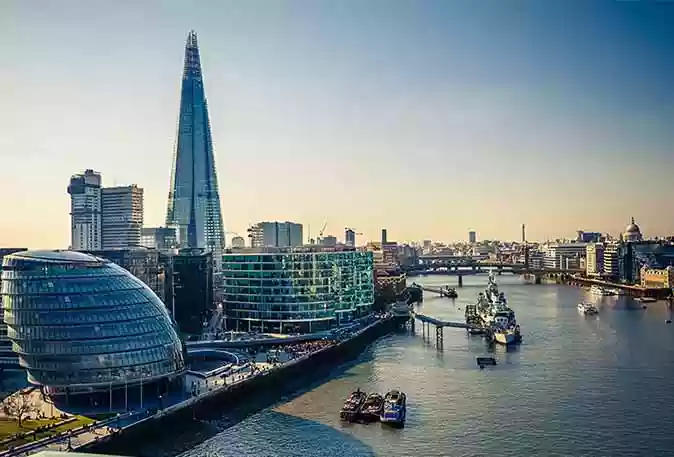
Why are Brexit talks making so little progress?
Since Theresa May triggered Article 50 in the 29th March earlier this year, it seems that little progress has been made in the Brexit negotiations and many people are confused about what it is actually all about. So what are the main sticking points and have things actually been moving forward behind the scenes?
Talks to date have centered mainly around the UK’s financial divorce bill with the EU. These are mainly comprised of four main elements.
- EU Budget contributions
The UK’s ongoing financial contribution to the EU budget, for example for funding commitments for structural and investment fund projects and research and innovation projects during the current budgetary period 2014-2020 on which the UK also voted, are top of the Brexit agenda. The EU, including the UK, has also agreed funding programmes that will start in the years 2019 to 2025, such as infrastructure projects and EU wants Britain to continue to contribute to these projects. Although Theresa May has made an offer of €20bn to cover the UK’s EU budgetary commitments until 2020, Mr Macron’s comment suggests the final bill could be over €40bn with some leaders quoting figures as high as €90bn. So it seems that the two sides are still far apart.
- The pensions bill
The EU expects the UK to cover its share of pension contributions of EU retired officials who served during its membership. This adds another € 11bn to the divorce bill according to EU calculations and with UK figure closer to € 3.5bn it is another sticking point in the negotiations.
- Loan funding
There are also liabilities for loans made by the EU to countries such as the Ukraine and Ireland. There’s a price attached should the loans default, though they will hopefully be repaid. The EU wants the UK to make funds available now in case the loans are not repaid.
- Relocation of two European Agencies
Another point of disagreement is the tab for moving the European Medicines Agency (EMA) and the European Banking Authority (EBA out of the UK. £521 million, was quoted to move the EMA and the EBA may have to remain in the UK for more than a year after Brexit to minimise relocation costs.
The Brexit divorce bill is not the only sticking point in the negotiations, the right of EU citizens after Brexit and the Irish Border have also been on the main agenda and are important issues that must be agreed before trade talks can begin.
Rights of EU citizens in the UK and UK citizens in the EU
Most of the progress so far has been made here. The EU was hoping for a guarantee of citizens’ rights from the UK and in her Florence speech May said she would incorporate protection for EU citizens living in the UK into the exit treaty to ensure British courts can refer to it directly, which goes beyond previous proposals.
In the same speech, May made a further concession confirming that she wants “UK courts to be able to take into account the judgments of the European court of justice with a view to ensuring consistent interpretation.”
Northern Irish Border
How to deal with the Northern Irish border does not have an easy solution and many fear changes could threaten peace in Northern Ireland.
Three solutions have been tabled with the first being the most straightforward but most difficult to implement. If the UK stays in the EU’s customs union it would allow for free movement of goods across the border but it is unlikely for the UK to remain in the customs union.
The second solution would be to place the border between Northern Ireland and the rest of the UK. This would cut Northern Ireland off from the rest of the UK and is unlikely to be accepted by the Democratic Unionists, without whose support the Government could not achieve a majority vote.
The third option would be a soft border between Ireland and Northern Ireland which could be a relatively open border, but the EU would insist the customs union was not jeopardised. Realistically, it may not be achievable either, as the Irish government insists that it will not accept any border.
But what about trade talks?
It seems like little progress has been made in settling the major issues that are stopping the talks from progressing to the vital trade negotiations. Businesses are keen for the trade deal to be finalised as soon as possible to end uncertainty after Britain finally exits the EU. As the months go by with little progress in sight, time is running out for both sides. Michel Barnier said it will take three years to negotiate a trade deal and in reality it would need to be agreed by October 2018 so that it can be ratified by all the national and regional parliaments in time for UK’s exit in March 2019.
That’s exactly why Britain wants a transition period when leaving the EU and May confirmed this period could last for “around two years” . It aims to give businesses and the government time to adjust to the post-Brexit landscape. The UK Chancellor, Philip Hammond, is now pressing the EU on this topic with his need for speed campaign, but the commission has repeatedly insisted that other issues such as the financial settlement, EU citizens rights and the Northern Irish border need to be finalised before any discussions about the future trading relationship can start.
To keep up to date with the latest Brexit news email us on info@axada.co.uk to sign up to our Brexit newsletter or follow us on twitter at the bottom of the page.



